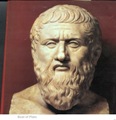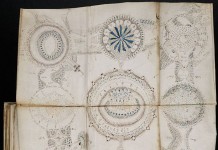 The Plato Code. No, it’s not the next best-seller by Dan Brown; this is something real. It comes out that a science historian has discovered that Plato, one of the ancient Greek philosophers whose known writings shaped the whole of modern scientific thought, hid secret writings within those known writings by means of a code.
The Plato Code. No, it’s not the next best-seller by Dan Brown; this is something real. It comes out that a science historian has discovered that Plato, one of the ancient Greek philosophers whose known writings shaped the whole of modern scientific thought, hid secret writings within those known writings by means of a code.
However, banish thoughts of directions to a hidden treasure. The real treasure Plato hid was some of his more radical (for the time) philosophies, that could have caused him to be executed like his teacher Socrates had they become widely known.
The hidden codes show that Plato anticipated the Scientific Revolution 2,000 years before Isaac Newton, discovering its most important idea – the book of nature is written in the language of mathematics. The decoded messages also open up a surprising way to unite science and religion. The awe and beauty we feel in nature, Plato says, shows that it is divine; discovering the scientific order of nature is getting closer to God. This could transform today’s culture wars between science and religion.
I can’t help but think the article is exaggerating a little. I have a hard time imagining the “culture wars between science and religion” being “transformed” just because someone just discovered that a philosopher from 25 centuries ago said nature is divine.
Still, if this is indeed true, it’s a fascinating find. Who would have imagined we could still find something entirely new in 2,500-year-old texts? Just goes to show that you can never underestimate the value of a thriving public domain.
And it makes me think about e-books in a new light just a little, too. It’s hard to conceive of an e-book lasting even a hundred years, let alone twenty-five centuries. Plato’s writings were fixed in a solid form, and have survived for thousands of years. E-books have a ways to go before they can last quite that long.
The 32-page paper laying out the methodology used in uncovering the codes can be found here (as a PDF).
(Found via Slashdot.)
































